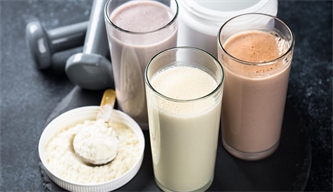22Mar
Should You Be Tracking Your Macros?
Tracking Your Macros
Macros, or macronutrients, are the building blocks of the food we eat, and they include protein, carbohydrates, and fats. Tracking your macros is a popular way to optimize your diet and achieve your fitness goals. But is it right for everyone? Let's look at the pros and cons of tracking your macros, so you have all the facts before deciding what works best for you.
PROS
The benefits of tracking your macros.
- It can help you reach your fitness goals. If you're trying to lose weight or gain muscle, tracking your macros can help ensure that you're getting the right balance of nutrients to support your goals. Sometimes that visual guide helps us know that we are staying on track!
- It can help you learn more about nutrition. When you start tracking your macros, you'll quickly learn which foods are high in protein, carbs, and fats. This can help you make better choices when it comes to meal planning and grocery shopping. You’d be surprised just how much the food you eat impacts
- It can help you stay accountable. Accountability is key! When you're tracking your macros, you're more likely to stick to your diet because you're monitoring your intake. This can help you keep you on track and motivated to stay consistent.
CONS
The cons of tracking your macros.
- It can be time-consuming.While tracking your macros may require some extra time and effort, you can try utilizing one of the many apps out there that help make tracking simple and easy. Incorporating meal prep and planning into your routine can also help you stay on track while saving time and making healthy eating more convenient. Ultimately, it’s about what works best for you and your health goals!
- It can be restrictive. Some people find that tracking their macros can be too restrictive, potentially leading to disordered eating habits. It’s important that you check in with yourself, and your doctor, to find out what works best for your overall health and wellbeing. The priority should always be to love the skin you're in at every stage, and if tracking negatively affects that, then it might not be for you.
- It's not necessary for everyone. If you're already eating a balanced diet and don't have any specific fitness goals, tracking your macros might not be necessary! It is meant to be a tool to help you achieve a specific goal, not a requirement.
Whether or not you should track your macros ultimately depends on your individual goals and preferences. Find a routine and lifestyle that makes the most sense for you to keep you feeling your best!
About the Author
Related

Curious what all those beverages are that fill the fridges as you walk into the club? Aside from the...
Read More >

Are you familiar with the new term "hip dips?" What are hip dips? And why do some people f...
Read More >

Ready or not, triple digit temperatures are right around the corner! While swimming is a great way t...
Read More >

If you’re working toward a weight loss goal, you may have been told you should focus on doing ALL C...
Read More >

When life gets busy, it can be challenging to prepare healthy meals. Luckily, Trader Joe's offer...
Read More >

Have you gotten your steps in today? While it turns out there’s nothing magical about that 10,000 s...
Read More >